234567891123456789212345678931234567894123456789512345678961
--------|---------|---------|---------|---------|---------|-
-
Install virtualbox 7 from virtualbox.org
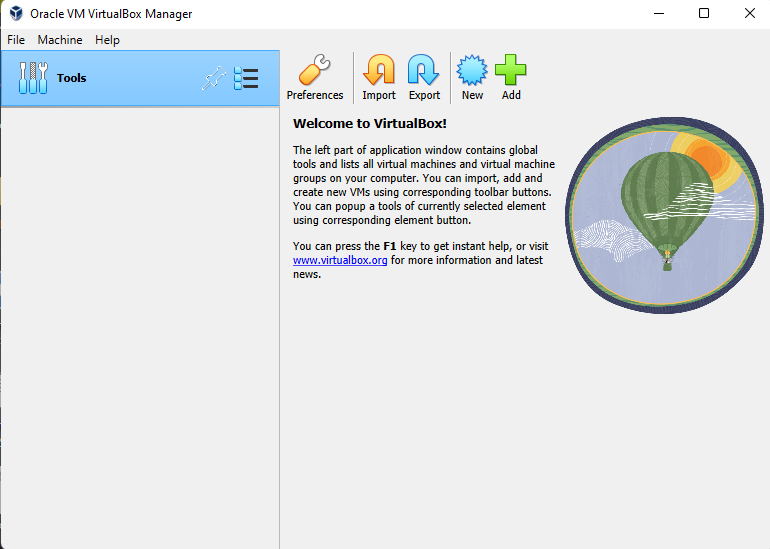
-
Create virtual machine from:
debian-115-sudo-unattended-M9o.iso
This ISO was created during our first (Tatari 64) session and is attached to Teams assignment ("Sissejuhatus, OS (Debian) unattended install")
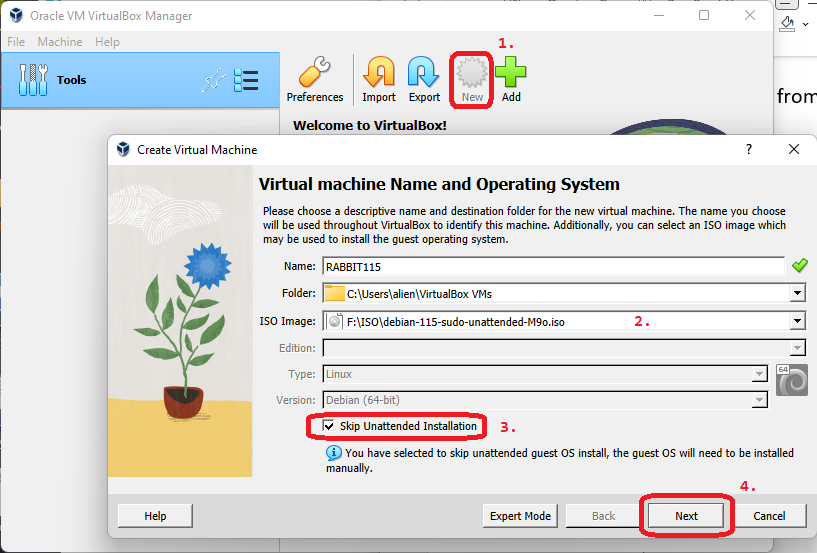
NOTE! THE TRICKY PART WAS:
To achieve unattended install we need to
[v] Skip Unattended Installation
-
Hardware:
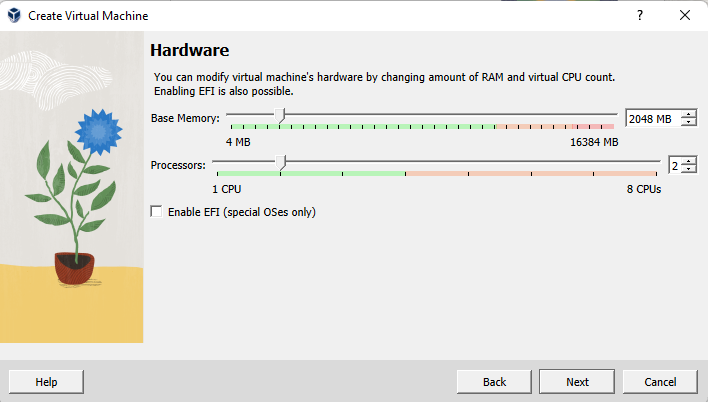
-
Virtual Hard Disk:
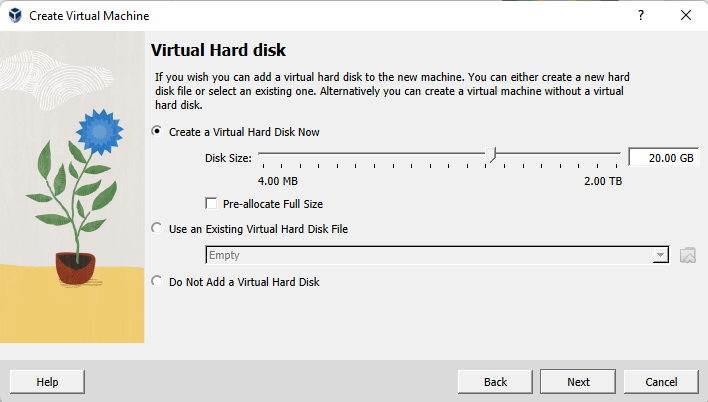
-
Summary:
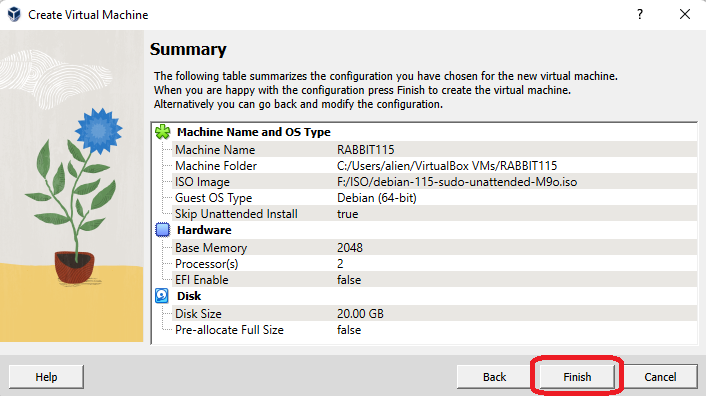
-
If you are behind WiFi in your Host machine:
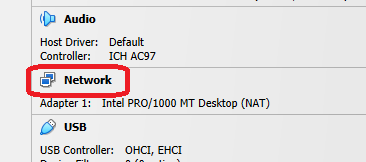
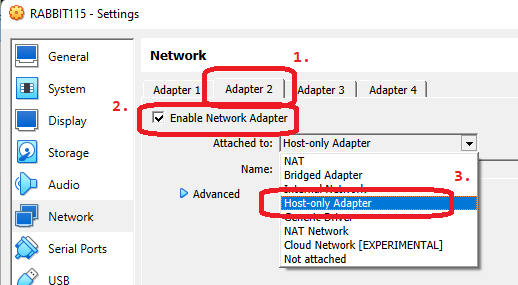
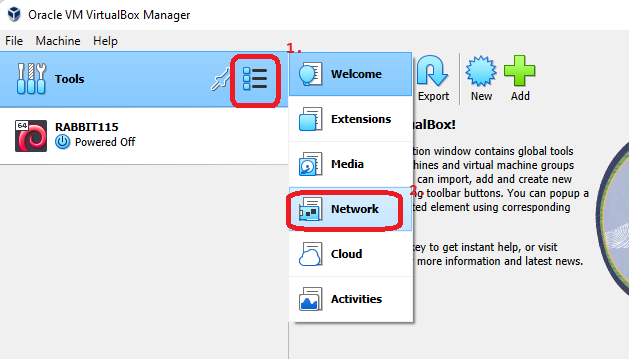
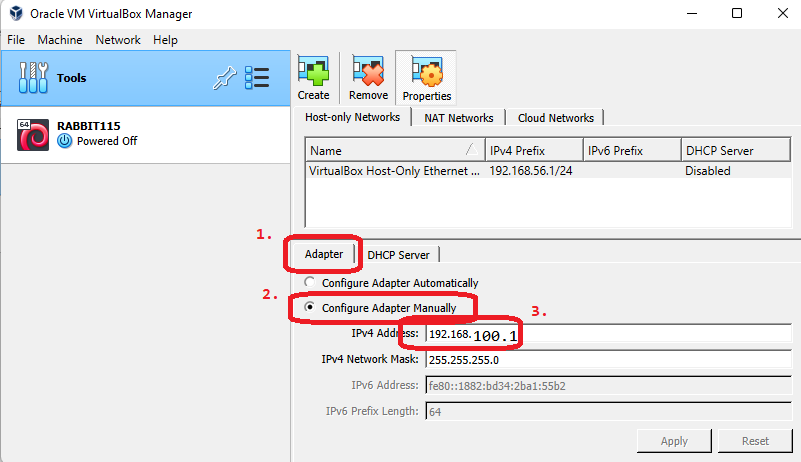
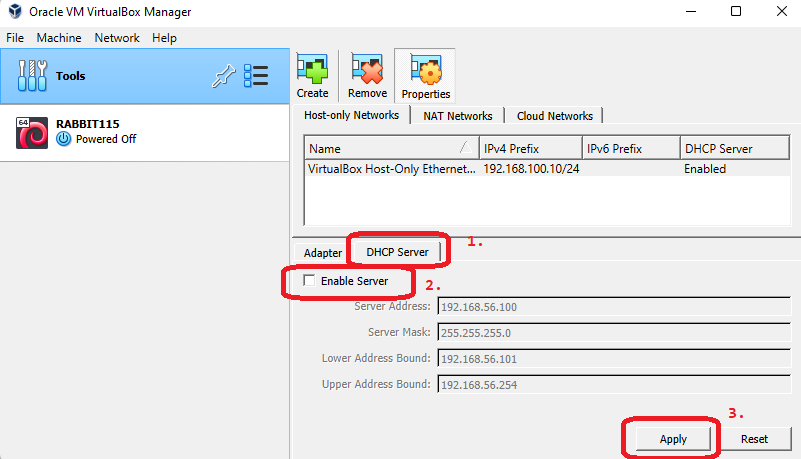
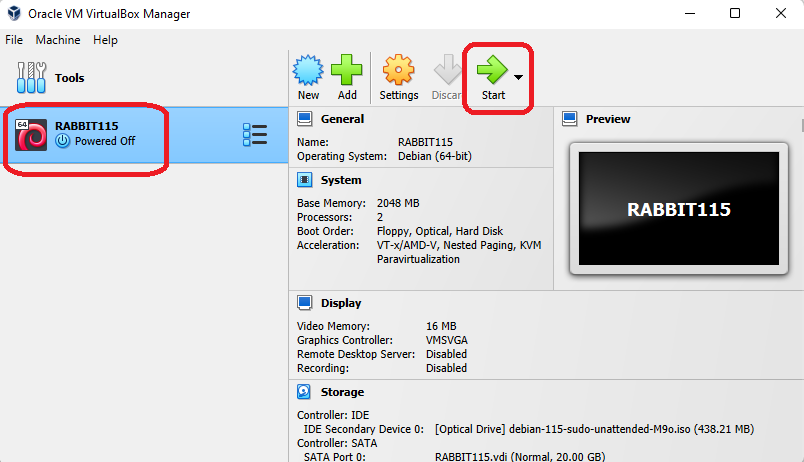
After the installation process is successfully finished, it’s time to configure our second network adapter. We have to login directly into our Virtual Machine (no Putty, Kitty, Powershell, etc.) as
User: it
Password: Passw0rd
NB! Typing in your password is not echoed.

This is how your NIC configuration file should look like (use
sudo nano /etc/network/interfaces
to edit and save your file):
# This file describes the network interfaces available
# on your system and how to activate them. For more
# information, see interfaces\(5\).
source /etc/network/interfaces.d/*
# The loopback network interface
auto lo
iface lo inet loopback
# The primary network interface
allow-hotplug enp0s3
iface enp0s3 inet dhcp
# The secondary network interface
allow-hotplug enp0s8
iface enp0s8 inet static
address 192.168.100.10
netmask 255.255.255.0
Now you should reboot your virtual machine with
sudo reboot
Next, connect to just restarted virtual machine with Putty, Kitty, Powershell on:
ip 192.168.100.10 port 22
NOTE:
Segment 192.168.56.x is used by Microsoft Windows, SO PLEASE DO NOT USE IT
```
Now when our connection is established, we are happy with this:
login as: it
it@192.168.100.10's password:
Linux bull-unattended 5.10.0-18-amd64 #1 SMP Debian
5.10.140-1 (2022-09-02) x86_64
The programs included with the Debian GNU/Linux system
are free software; the exact distribution terms for each
program are described in the individual files in
/usr/share/doc/*/copyright.
Debian GNU/Linux comes with ABSOLUTELY NO WARRANTY,
to the extent permitted by applicable law.
Last login: Sat Oct 15 13:30:25 2022
it@bull-unattended:~$ ip a
1: lo: <LOOPBACK,UP,LOWER\_UP> mtu 65536 qdisc
noqueue state UNKNOWN group default qlen 1000
link/loopback 00:00:00:00:00:00 brd 00:00:00:00:00:00
inet 127.0.0.1/8 scope host lo
valid_lft forever preferred_lft forever
inet6 ::1/128 scope host
valid_lft forever preferred_lft forever
2: enp0s3: <BROADCAST,MULTICAST,UP,LOWER_UP> mtu 1500
qdisc pfifo_fast state UP group default qlen 1000
link/ether 08:00:27:3e:7e:1e brd ff:ff:ff:ff:ff:ff
inet 10.0.2.15/24 brd 10.0.2.255 scope
global dynamic enp0s3
valid_lft 86214sec preferred_lft 86214sec
inet6 fe80::a00:27ff:fe3e:7e1e/64 scope link
valid_lft forever preferred_lft forever
3: enp0s8: <BROADCAST,MULTICAST,UP,LOWER\_UP> mtu 1500
qdisc pfifo_fast state UP group default qlen 1000
link/ether 08:00:27:3b:ea:d3 brd ff:ff:ff:ff:ff:ff
inet 192.168.100.10/24 brd 192.168.100.255 scope
global enp0s8
valid_lft forever preferred_lft forever
inet6 fe80::a00:27ff:fe3b:ead3/64 scope link
valid_lft forever preferred_lft forever
it@bull-unattended:~$ ping -c 1 google.com
PING google.com (216.58.210.142) 56(84) bytes of data.
64 bytes from mad06s09-in-f142.1e100.net
(216.58.210.142): icmp_seq=1 ttl=57 time=9.32 ms
--- google.com ping statistics ---
1 packets transmitted, 1 received, 0% packet loss, time 0ms
rtt min/avg/max/mdev = 9.323/9.323/9.323/0.000 ms
it@bull-unattended:~$
Well, The tldr Lab starts here, but this is another tale..











